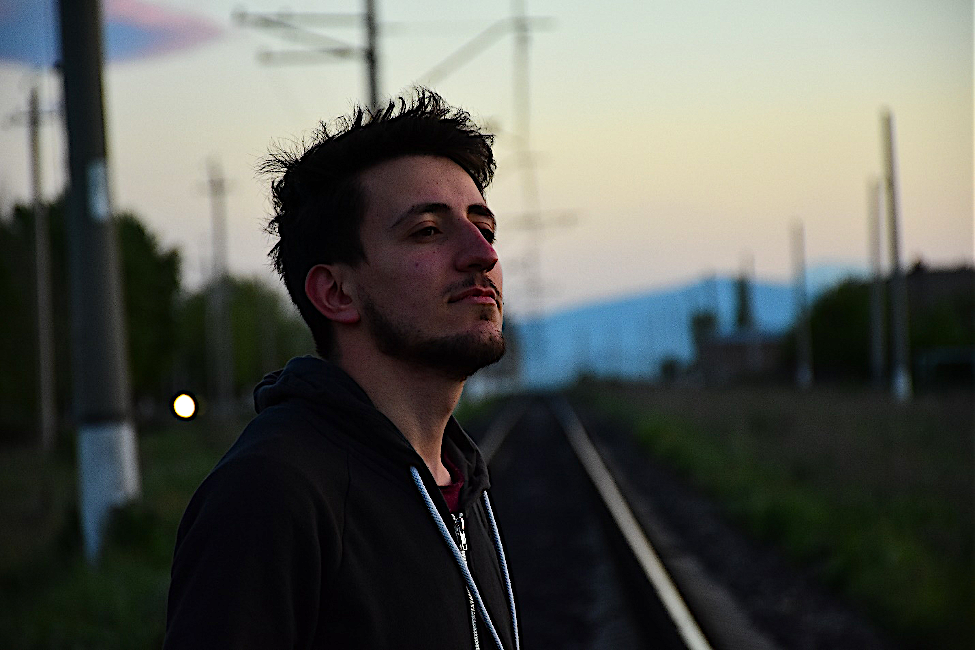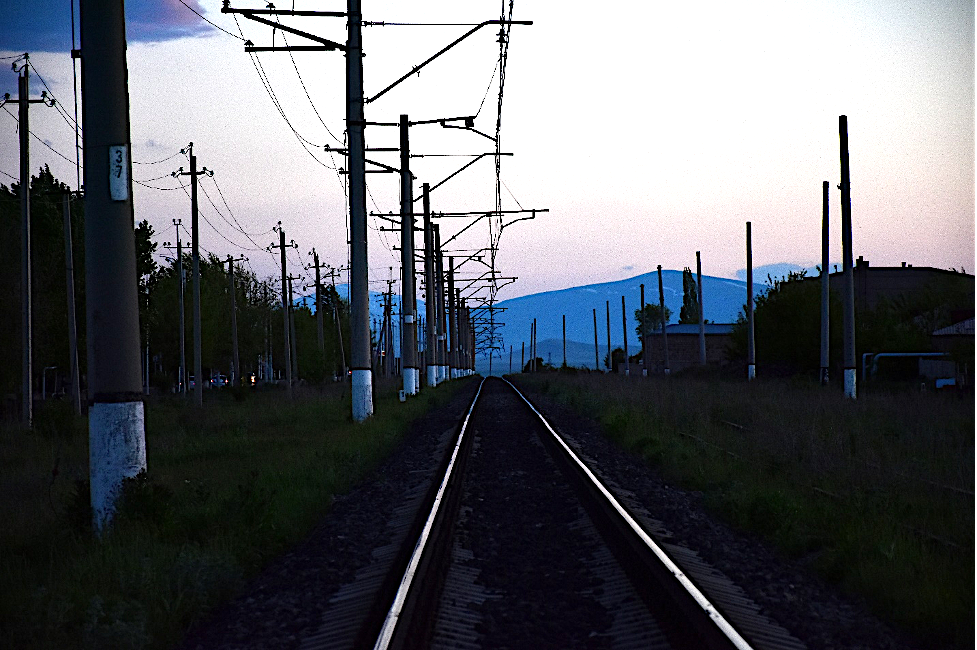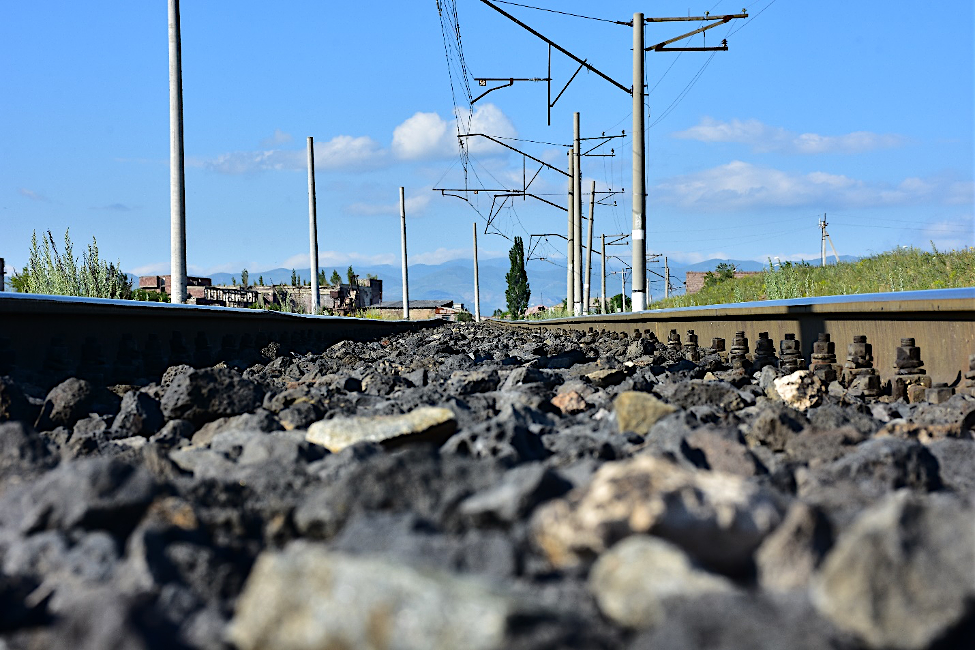Closed railway of my childhood and the Armenian-Azerbaijani conflict
The Tbilisi-Gyumri-Kars railway remains closed, and with it the opportunities for communication between Armenians and Turks, as well as Azerbaijanis. In his blog, Armenian journalist Alexander Martirosyan reflects on how the second Karabakh war ended up closing communication routes and the difficulty of resolving the Armenian-Azerbaijani conflict.

“The railway that once connected Armenia and Turkey passes by our house in Gyumri. Then it splits, another branch goes south, to Yerevan, and from there on to Iran and Azerbaijan.
I remember when I was little, trains with large containers passed along this railway 3-4 times a day: morning, afternoon and evening, for about six hours. Sometimes the whistle of a diesel locomotive sounded in the evening but more often in the early morning.
When I heard a train approaching, my favorite pastime, which I considered my duty as a child, was to run out onto the balcony and start counting the number of carriages.
I almost never managed to count them, but every time I promised myself that next time everything would be fine, because I would count better, more carefully.
Our apartment was on the second floor, and the crowns of the trees prevented me from counting the carriages. There was a small gap between the branches, which helped me catch the moment when the previous car ended and the next one began. But it still didn’t help.

The railway has been shut down for a long time. It is almost like it does not exist, as there are no relations with Turkey and Azerbaijan and no dialogue between governments and peoples.
Despite numerous attempts to fix something, the last war (September 27-November 10, 2020) postponed a possible dialogue, and the very thoughts of peaceful coexistence for an indefinite period.
Why am I writing about this? The economy, that is, mutually beneficial cooperation, has always been the most important basis for cooperation between states, despite the painful and often indelible historical realities.
At the same time, the hostility between Armenians and Turks, Armenians and Azerbaijanis (who are also called Turks in Armenia), which seemed to have frozen for a while, is now deepening.
This is due to the militant aspirations and ambitions of high-ranking officials in our own and neighboring countries. Is this the fate of the region?
For many of us, Armenians, the conflict with Azerbaijan is a continuation of one of the most tragic pages of history – the Armenian genocide in Ottoman Turkey in 1915”.
The massacre of ethnic Armenians took place in Ottoman Turkey in 1915. Before that, about two and a half million Armenians lived on the territory of the Ottoman Empire. As a result of the killings and mass deportations, more than half of them died. Armenia and several Western countries and organizations officially recognize those events as genocide. Turkey categorically rejects such a formulation.
“More than a hundred years have passed since that time, but we still have not understood what we want from this world and from ourselves, what our miscalculations and mistakes were.
This does not allow us to decide: why do we need recognition of what happened more than a century ago? What is the point if the recognition of the death of hundreds of thousands of people occurs as a result of political calculations, and not on the basis of humanity, cultural and humanitarian principles?
What’s more, in my opinion, political speculation on the topic of recognition is simply offensive for many.
Instead, one should think in human terms and get rid of the image of a blind believer, false piety, unnecessary ambition.
We all deserve a carefree life.
I am standing in our house in Gyumri, and I am haunted by the thought that closed roads deprive us of the opportunity to choose.
In turn, openness can help us distinguish economic interests from public interests, politics from murder, charity from hatred.
The east-west road doesn’t just pass our house. No matter how trite it sounds, it passes through the hearts of each of us.
I stand on our balcony in Gyumri, look at the railway and realise that the 44-day war blocked the existing roads, instead of opening them. They are empty and quiet.
The railway of my childhood is a symbol that constantly reminds me: communication is more important than isolation.
The noise of the cars going from east to west and from west to east is more important than silence”.





















